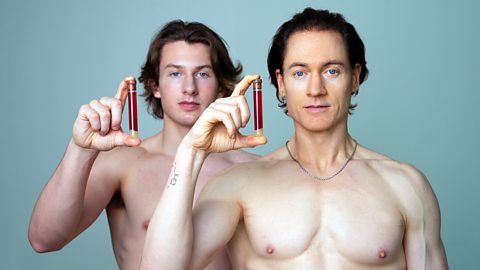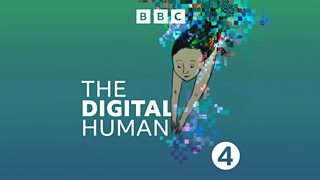Five unbelievable ways longevity pioneers are trying to live forever
Until recently, the idea that human beings could achieve immortality was seen as the stuff of science fiction. That was before tech billionaires got involved. With some of Silicon Valley’s sharpest minds – and largest wallets – now joining the quest for eternal life, could it only be a matter of time before ageing becomes optional?
In Radio 4’s gripping podcast The Immortals, Aleks Krotoski investigates the strange and shocking lengths longevity pioneers will go to in their attempts to beat death.
Some immortality advocates view ageing as a disease for which we have a moral responsibility to find a cure. Others believe everlasting life will ultimately come from humans uploading themselves to computers so we can live forever in digital form. Life expectancy has already doubled over the past 100 years. So, with billions now being invested in longevity research, there’s every reason to believe greater gains are possible. Here are five things anti-ageing pioneers have done so far in their efforts to beat death.
Intrigue: The Immortals

They've made their money in Silicon Valley. And with their technology, they've ushered in the world that we live in today. Some now want to solve the "problem" of death. Can they? Aleks Krotoski investigates.
1. Stitching old and young mice together
Yes, this one’s as gruesome as it sounds. Scientists Mike and Irina Conboy wanted to understand the role blood plays in how tissues age. So, to see what would happen to an old mouse when it received young blood, they stitched pairs of mice together. Mike explains, “as that tissue heals and blood vessels reform… now you have blood slowly trickling from one animal to the other.”
The results were compelling. The old mice became stronger and mentally sharper, and markers of age were reversed. Although the sample size was small, the Conboys’ findings were notable enough to be published in the peer reviewed journals Science and Nature in 2005, and they’ve influenced the longevity community ever since.
2. Getting injected with young blood plasma
Inspired by the Conboys and the research that followed, tech entrepreneur Bryan Johnson has tried something pretty shocking: being injected with a young person’s blood plasma. To make sure he was getting plasma from a healthy donor, Bryan asked his then 17-year-old son to help him out. He tells Aleks, “I never imagined that my little baby would grow up and I'd be doing this procedure with him.” And it didn’t stop there: Bryan donated plasma to his dad too.

Blood brothers
Three generations of Bryan Johnson's family are sharing blood products.
It’s not only the Johnsons who’ve tried this vampiric therapy. In 2016, a company called Ambrosia Plasma, led by Jesse Karmazin, launched a clinical trial to find out whether young blood plasma really could reverse ageing. He explained that, “Each patient received a single dose of plasma and we measured about a hundred biomarkers before and one month after treatment.”
Media hype followed, and the treatment briefly grabbed the attention of some of the biggest tech billionaires. But although Karmazin claimed to have achieved striking results, the trial’s findings were never published. Then, in 2019, Ambrosia Plasma shut down after the US Food and Drug Administration warned that “Such treatments have no proven clinical benefits for the uses for which these clinics are advertising them and are potentially harmful.”
3. Testing anti-ageing drugs on dogs
Biotechnology start-up founder Celine Halioua is determined to find a drug that can treat ageing. But because we age so slowly, running a clinical trial in humans would take decades and cost billions of dollars. So, Celine’s found an ingenious hack: her company plans to test longevity drugs on canine subjects instead. She says dogs “develop the same age-related diseases we do at approximately the same time in their lifespan.” But because they don’t live as long, Celine believes she could see results from a drug within six to 12 months.
The other clever bit? Until now, US regulators have never approved trials on a drug for ageing. It’s just not been seen as something that can be treated. Celine tells Aleks that if her plan gets the go-ahead, it will show that anti-ageing medicine is a legitimate field, and potentially open a route for future drug research in humans.

4. Creating a longevity state

Russian Canadian cryptocurrency superstar, Vitalik Buterin, wants to see if he can radically extend human life for everyone. In March 2023, he set up Zuzalu, an experimental “pop-up city” that brought together 200 of the brightest minds for two months to tackle the problem of ageing. Buterin wanted to create a test space where people could “work on these… longevity treatments in a very structured way”, with the ultimate aim of exporting their discoveries to the world.
Zuzalu got people talking about how to accelerate the longevity movement, and raised the idea of a potential ‘longevity state’, built around a belief that we can and should defeat ageing and death. In a place like this, innovation would be encouraged and barriers to research removed, creating a new kind of society. But could it happen for real? Free towns and crypto states have grown from an idea to reality before, so maybe…
5. Merging humans with machines
We’re back with Bryan Johnson. He no longer injects blood plasma – instead, he follows a strict lifestyle protocol that’s constantly refined by a computer algorithm, based on his latest health data. Incredibly, at 45, Bryan claims his biomarkers are now similar to those of a 17-year-old.
Transhumanists have an even more extreme agenda – merging entirely with machines.
What Bryan’s doing is leaning on technology to support his goals. But Transhumanists have an even more extreme agenda – merging entirely with machines. That’s the idea that we can and should expand our human capabilities by merging with machines. It covers everything from biohackers inserting microchips under their skin, to tech start-ups working on replicating the human brain. And some devotees believe it’s the key to cheating death.
Professor Nick Bostrom, of Oxford University, thinks immortality lies in giving ourselves over to technology entirely. He says, “radical life extension” won’t come from biomedical research, “but will go instead through us first developing really powerful AIs, and incidentally… unlocking a lot of other radical possibilities for humanity, like uploading into computers.”
-
![]()
Introducing Intrigue: The Immortals
In The Immortals, technology reporter and psychologist Aleks Krotoski explores the frontiers of the extreme longevity pioneers. Listen to Aleks's introduction to the series.

Further listening and viewing on the ����ý
-
![]()
Intrigue: The Immortals
Aleks Krotoski tracks the imminent cure for aging and the push by Silicon Valley to own it.
-
![]()
Watch: How safe is it to "hack" the ageing process?
Trying to slow down the ageing process through ‘biohacking’ is a growing trend. But is it safe? Are there more natural ways to stay young?
-
![]()
The Digital Human
Aleks Krotoski explores the digital world.
-
![]()
Four Thought: Virtually Immortal
Tracey Follows explores how virtual assistants can help us survive after death.





